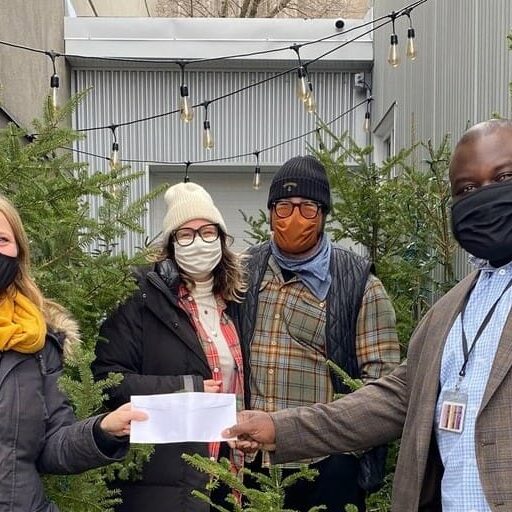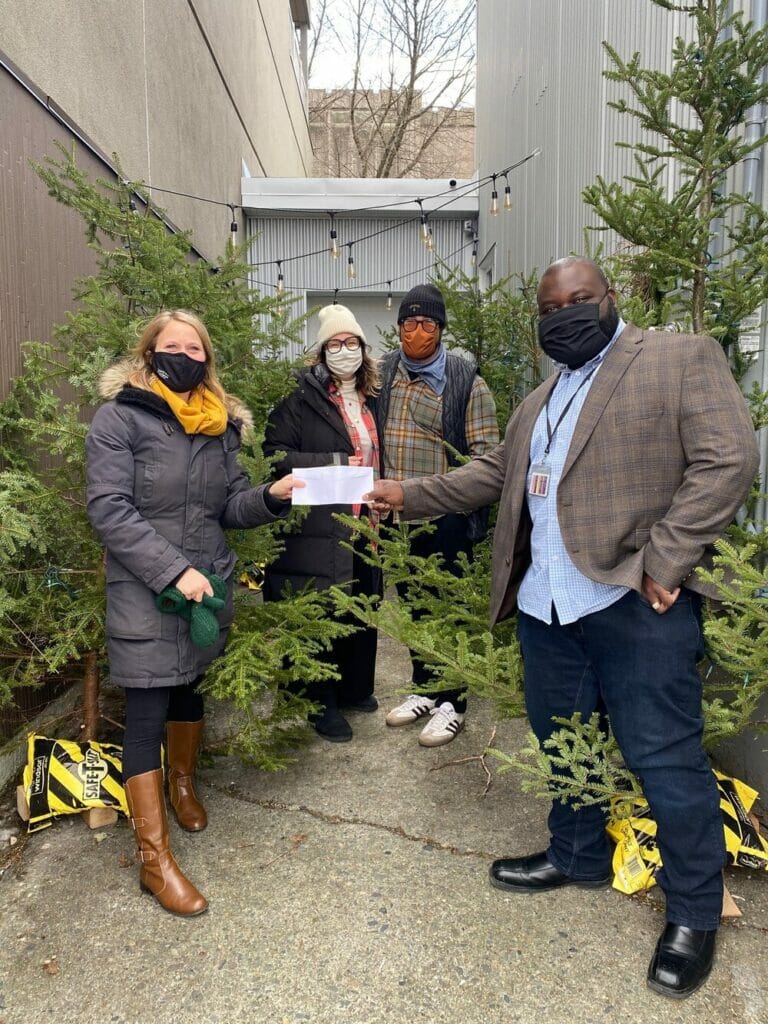
Breaking barriers in healthcare
Nova Scotia Brotherhood Fund expands mental health services for Black Nova Scotians
The Mental Health Foundation of Nova Scotia has partnered with the Nova Scotia Brotherhood Intiative (NSBI) to help bring better, culturally specific healthcare to Black people in the province.
The Brotherhood is a provincial program under the Nova Scotia Health Authority (NSHA) that provides Black men with access to culturally specific healthcare from Black health professionals, as well as other community mentorship services. In person, the Brotherhood operates across the Halifax Regional Municipality. But due to COVID-19 many of their services have become virtual allowing them to serve patients across the province.
The partnership, called the Nova Scotia Brotherhood Fund, was announced in December 2020 as a part of the foundation’s pledge to actively seek out and support initiatives that help Black, Indigenous and People of Colour (BIPOC) in the province, said Jill Chappell, marketing and communications lead at the foundation. The fund has so far raised $10,000 – an opening donation from Halifax clothing store Ana + Zac – and is now accepting public donations.
Mario Rolle, the team lead for the NSHA Community Health and Wellness Centres and the NSBI, said the partnership with the foundation and the donation from Ana + Zac was “heaven-sent.”
“They saw what we were doing, and gave us an opportunity to keep doing what we’re doing,” said Rolle. “In a few months, they’ve done a lot for us.”
The new source of funding will allow the Brotherhood to expand their mental health programs while also creating new support services for Black Nova Scotian women, Rolle said.
How the partnership came together

According to Chappell, the partnership began in the summer, with the resurgence of the Black Lives Matter campaign.
“What we saw happening right before our eyes when we were all [alone] due to COVID-19 really spurred us to take action and to be allies,” Chappell said. “And do that in a more meaningful way than just what we were already doing.”
Chappell said the foundation was aware of the NSBI and the work they do. After reaching out to the NSBI, the foundation learned they had been struggling to fulfil all the requests they were receiving from the community due to a limited budget, Chappell said.
“[The NSBI has] an amazing program, they offer amazing services, they have the trust of the community. And what we wanted to do was provide them with additional funding so they can enhance what they’re already doing, and better meet the needs of the [Black Nova Scotian] community,” Chappell said.
Ana + Zac, which is run by Anna Gilkerson and Zac Barkhouse, became involved after they approached the foundation hoping to donate towards mental health supports during the pandemic, Gilkerson said in an email to the Dalhousie Gazette, writing on the behalf of her and Barkhouse.
They became inspired to raise money after a company the store works with in Lithuania sent them a box of linen scraps in the spring, she said.
They decided to make masks out of the scraps and sell them, with 100 per cent of the proceeds going towards mental health, Gilkerson said. That campaign raised $7,400 in the spring. It was then, Gilkerson said, they decided to set a year-end goal of raising $10,000. In the fall, the store held a Christmas tree sale, which raised $2,600 to bring their total donation to $10,000. Gilkerson and Barkhouse were paired with the Brotherhood, after expressing their interest in supporting a BIPOC organization in their community to the foundation, Gilkerson said.
“The sort of work that the Brotherhood does benefits not only the individual, but their families and in turn future generations. It’s important work and we are very honoured to have been able to contribute,” Gilkerson said in her email.
Why the Brotherhood’s work is so important
Rolle said the Brotherhood’s mission is simple: to break down barriers for Black men in the healthcare system and beyond.
The program was founded in 2016, modelled after a similar program in Chicago called Project Brotherhood. According to Rolle, it remains the only program of its kind in Canada.
The program offers free physical and mental health services to Black men by Black men, Rolle said. Through this approach, Rolle said the Brotherhood attempts to build relationships between healthcare professionals and Black men.
“The relationship is key,” Rolle said. “If you can’t build a relationship with your client, you’re not going to be able to help them.”
To achieve these relationships, appointments with the Brotherhood’s doctors usually last between 30 to 45 minutes: “When you come in to see our doctor, he wants to get to know you,” Rolle said.
Through this process, doctors are able to learn the family history of their patients and identify any hereditary issues that may eventually affect the patient.
The Brotherhood also builds relationships with their patients through the navigator position. The primary role of a navigator is to guide patients through the healthcare system. They also provide patients with support in other aspects of their lives that may be affecting their physical or mental health, which are known as social determinants of health.
The most significant social determinant of health for the Brotherhood’s patients is racism, Rolle said.
“Wherever you go, you’re going to have racism,” he said.
Whether they face this racism in the criminal justice system or attempting to find employment, Rolle said the Brotherhood takes everything into account when trying to help a patient.
“It’s a cause and effect kind of thing. So, with the Nova Scotia Brotherhood we realized that in order to help the whole man, we have to work on those social determinants of health,” Rolle said.
Practically, this could mean connecting patients with affordable housing services or helping them meet with a lawyer, which Rolle used to do as a navigator before moving to team lead, he said.
Rolle continues to fulfil navigator duties when needed, as the Brotherhood currently only has one person in the position, he said.
New funding will increase mental health supports
The funding from the Nova Scotia Brotherhood Fund will be used to increase the Brotherhood’s mental health programming, while also allowing them to expand their services and help Black Nova Scotian women as well, Rolle said.
“In order to help our men, we have to help our women,” Rolle said.
“We’re confident there needs to be a sisterhood,” he said. From there, they hope to build a comprehensive service for Black health in the province, Rolle said.
A large part of the Brotherhood’s goal when it comes to mental health is eliminating the stigma existing around Black men asking for help, Rolle said.
“There’s a stigma, you know, from Black men about these various services. I mean, some services are available, but men are afraid to utilize them,” Rolle said. “We want to educate, we don’t want to embarrass.”
Rolle said making sure women are also receiving proper mental health services can help reduce the stigma within communities, especially when people like mothers and grandmothers know the value of mental health help “because that’s who everyone listens to,” Rolle said.
Although this is just the beginning of the fund, Rolle said the $10,000 donation is recognition the Brotherhood is doing good work. Now, they only hope to improve upon it.






